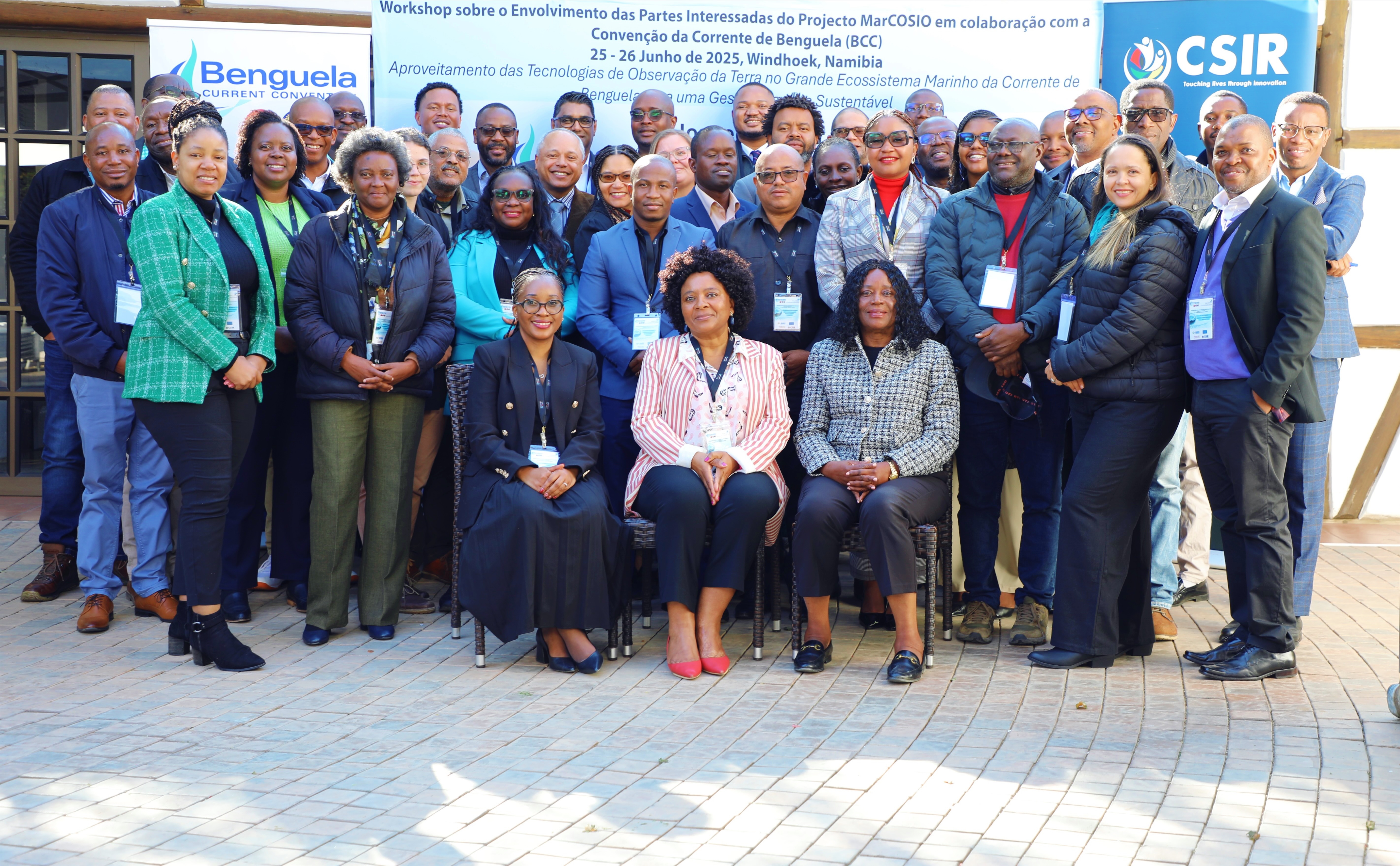Pioneering Earth Observation technologies for sustainable Blue Economy in Africa
Earth Observation (EO) has traditionally followed a predictable pattern: satellites capture images from space, transmit them to ground stations during available communication windows, and only then can processing begin to extract insights. This workflow creates inherent delays between observation and action; thus, the role of the Global Monitoring for Environment and Security (GMES) and Marine and Coastal Operations for Southern Africa and the Indian Ocean (MarCOSIO) in Africa is key.
Earth Observation (EO) has traditionally followed a predictable pattern: satellites capture images from space, transmit them to ground stations during available communication windows, and only then can processing begin to extract insights. This workflow creates inherent delays between observation and action; thus, the role of the Global Monitoring for Environment and Security (GMES) and Marine and Coastal Operations for Southern Africa and the Indian Ocean (MarCOSIO) in Africa is key.
From 25 to 27 June 2025, the Council for Scientific and Industrial Research co-hosted the GMES and Africa and MarCOSIO regional stakeholder workshop with the Benguela Current Convention (BCC) at the Roof of Africa Convention Centre in Windhoek, Namibia.
Robust discussions were held under the theme, “Harnessing Earth Observation technologies in Benguela Current Large Marine Ecosystem for sustainable marine management.” The workshop showcased the innovative EO technologies developed under the project, highlighting their alignment with the ocean governance strategies of the BCLME region, the BCC’s Strategic Action Programme, Blue Economy, climate change and the Parties’ National Action Plans.
The BCC is the lead partner of the Knowledge Management and Cross-fertilisation work package and co-leads with WIOMSA on the Policy and Institutional Framework work package.
Highlighting the significance of demonstrating the value and impact generated through the GMES and Africa services and technologies, Dr Bolelang Sibolla, a senior principal researcher at the CSIR, said, “The programme is purposeful, highlighting key challenges, especially within the Blue Economy strategy, and aligning our discussions with critical policy imperatives.”
#TeamCSIR was represented by the Spatial Information System Research Group Leader, Sives Govender; a senior principal researcher, Dr Bolelang Sibolla; a principal technician, Dr Raymond Molapo; principal engineer; senior technicians, Dr Lizwe Mdakane and Lufuno Vhengani, as well as Christo Whittle, a senior researcher in the Coastal Systems and Earth Observation research group under the Sustainable Ecosystems impact area.
Key objectives of the workshop included:
- MarCOSIO project services presented to key BCC stakeholders and structures in Namibia, Angola and South Africa;
- Highlighting the relevance, contribution and impact of the MarCOSIO and GMES and Africa projects to the BCC’s science and governance strategies
- Presenting the progress report and the next steps of the project;
- Outlining the basis for the establishment and participation in the Policy and Technical Expert Groups;
- Exploring more opportunities for bilateral agreements on the implementation of the use of systems; and
- Providing training on the Ship Traffic Monitoring Service to the relevant stakeholders.
On the final day of the workshop, Dr Mdakane facilitated a technical training session on the Ship Traffic Monitoring service for the consortia stakeholders. This technology, developed by the CSIR, also includes a system monitoring feature, as a technical lead of the MarCOSIO consortium.
The overarching key takeaways of the workshop were to create a multi-country working group under the SADC Monitoring Control and Surveilance Coordination Centre and for the BCC to coordinate EO activities, share data and align national as well as regional marine monitoring efforts, with the aim of enhancing and strengthening the development of regional marine EO strategy for the BCC Large Marine Ecosytem programme (BCCLME).
The goal remains to enhance the interoperability between Angola, Namibia and South Africa’s EO data platforms and establish protocols for secure, open-access data sharing among stakeholders.




